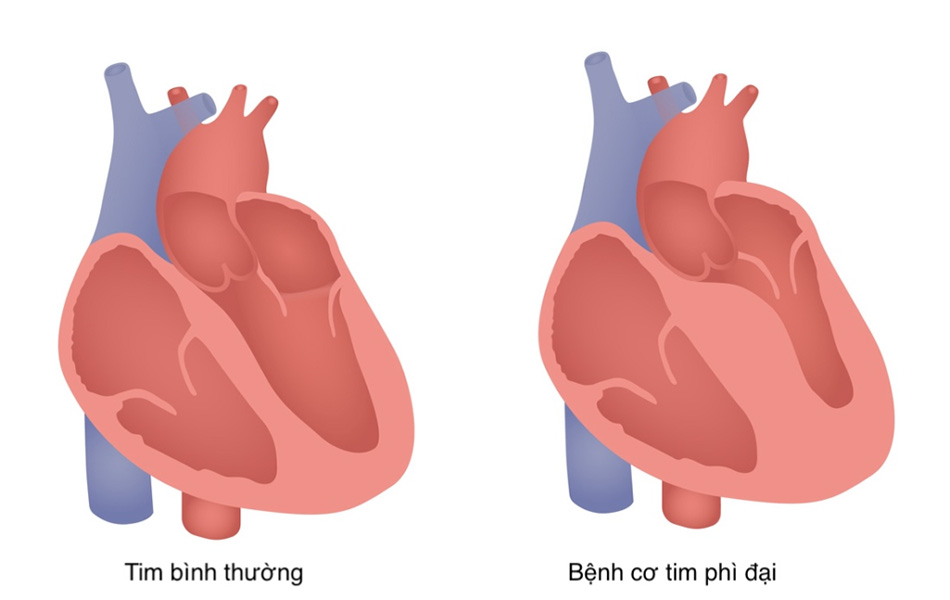Alcohol Septal Ablation, a complex and highly specialised procedure for treating hypertrophic cardiomyopathy, requires exceptional expertise. Ho Minh Tuan, MD, PhD, Head of Cardiology and Interventional Cardiology at FV Hospital, is one of the few specialists skilled in performing this advanced technique.
Recently, Dr Tuan has been actively collaborating with other medical facilities to implement this advanced procedure, offering effective treatment for patients.
Alcohol Septal Ablation Saves the Life of a Patient with Severe Hypertrophic Cardiomyopathy
With extensive experience in successfully performing alcohol septal ablation to treat hypertrophic cardiomyopathy, Ho Minh Tuan, MD, PhD, Head of Cardiology and Interventional Cardiology at FV Hospital, was recently invited by a leading private hospital in Ho Chi Minh City to collaborate with their medical team on this procedure for patients with advanced hypertrophic cardiomyopathy.
Among these patients was Ms D.T.V.N., a 38-year-old teacher whose health had significantly deteriorated due to the disease. She had previously had an implantable cardioverter-defibrillator (ICD) fitted, but in recent months, she experienced severe breathlessness and persistent fatigue. Tests revealed a critical obstruction in her heart’s outflow tract, with a pressure gradient reaching 125 mmHg. Without treatment, her symptoms of shortness of breath and fatigue were likely to worsen, potentially leading to severe heart failure, dizziness, or fainting.
The medical team presented Ms N. with two treatment options: open-heart surgery or the minimally invasive alcohol septal ablation procedure. She chose the alcohol septal ablation because of its less invasive nature and shorter recovery time.

Ho Minh Tuan, MD, PhD, performs Alcohol Septal Ablation for treating Hypertrophic Cardiomyopathy
The procedure lasted approximately one hour and was performed under local anaesthesia, allowing the patient to remain conscious throughout.
Through a small puncture in the thigh, Dr Ho Minh Tuan expertly guided a specialized device containing alcohol into the blood vessels supplying the thickened heart muscle. Once the target vessel was accurately identified, Dr Tuan injected a precise amount of alcohol to thin the thickened section of the heart muscle. Following the procedure, the patient’s condition stabilised, and her breathing returned to normal.
This was not the first time Dr Tuan has supported the doctors at this hospital with alcohol septal ablation procedures.
In June 2024, Dr Tuan was also invited to perform this technique for Mr H.T.D., a 63-year-old patient from An Giang. Mr H.T.D. suffered from severe obstructive hypertrophic cardiomyopathy, characterised by a ventricular wall measuring 25 mm, mitral valve regurgitation, high blood pressure, and signs of heart failure. Following the procedure, the patient’s hypertrophic wall thinned significantly, improving his breathing and resolving the mitral valve regurgitation.
Alcohol Septal Ablation for Hypertrophic Cardiomyopathy: A Highly Skilled Procedure Requiring Precision and Meticulous Execution
Hypertrophic cardiomyopathy is a condition where the heart muscle thickens (hypertrophy), making it harder for blood to be pumped out of the heart. This thickening forces the heart to work harder with each beat to deliver sufficient blood.

Illustration of a normal heart (left) and a heart affected by hypertrophic cardiomyopathy (right) with thickened heart walls.
Hypertrophic cardiomyopathy is a leading cause of sudden death in young people. Historically, patients with this condition had to undergo open-heart surgery for treatment. However, in recent years, the development of alcohol septal ablation has emerged as a less invasive alternative. This procedure involves injecting alcohol into the blood vessels that supply the thickened heart muscle, creating a controlled blockage that reduces the thickness of the heart tissue.
Dr Tuan explained that the decision to use alcohol septal ablation to treat hypertrophic cardiomyopathy is determined after a thorough evaluation by a multidisciplinary team. This technique is gaining global popularity due to its minimally invasive approach, high effectiveness, and lower complication rates compared to open-heart surgery. However, it demands a highly skilled specialist and a fully equipped Cathlab to ensure precise execution.
In Vietnam, Ho Minh Tuan, MD, PhD, is a leading expert in alcohol septal ablation for the treatment of hypertrophic cardiomyopathy. Under his leadership, the Cardiology and Interventional Cardiology Department at FV Hospital has successfully performed numerous alcohol septal ablation procedures, providing life-saving treatment for many patients with this condition.

FV Hospital has successfully performed dozens of alcohol septal ablation procedures.
With extensive experience from performing numerous successful alcohol septal ablation procedures, Dr Ho Minh Tuan, MD, PhD, has created opportunities for colleagues at other healthcare facilities to learn and refine their skills, enabling many doctors in Vietnam to master this complex technique.
The collaboration with other hospitals not only demonstrates FV Hospital’s commitment to knowledge sharing but also reinforces its pioneering role in adopting advanced medical techniques. By continuously enhancing service quality and investing in training healthcare professionals, FV Hospital is well-prepared to partner with healthcare institutions across the country, ensuring patients receive the most effective treatment solutions.



